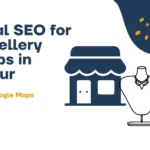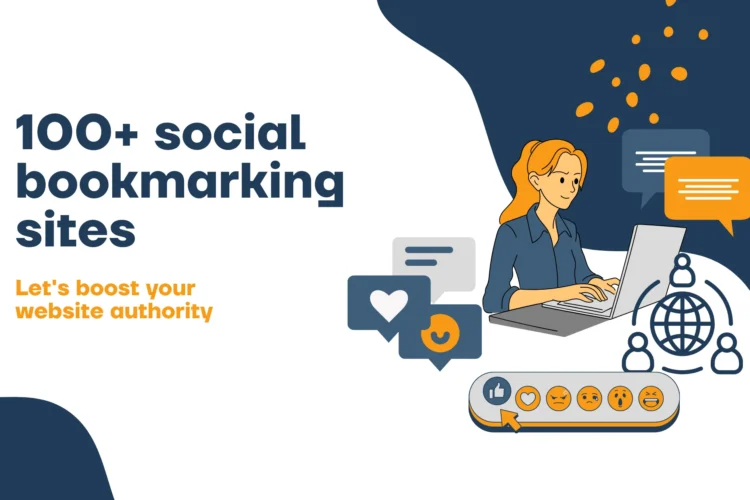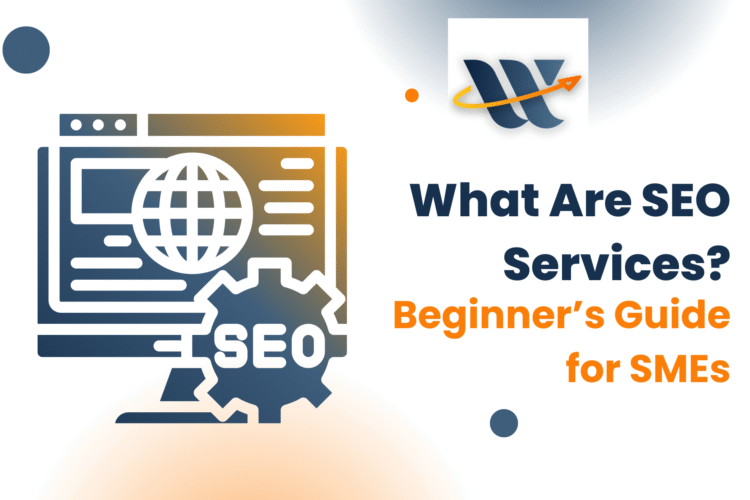
London’s fintech ecosystem is booming; the UK hosts about 2,500 fintech firms and accounts for 11 % of the global fintech industry. Six of the top ten fintech companies, according to Fintech50, have their headquarters in London.
However, competition is intense—the startups face congested markets and must rely on SEO to attract relevant users. A robust SEO strategy helps fintech startups build trust, drive organic traffic, and stand out in this crowded landscape.
Key Takeaways
- London is a global fintech powerhouse with 2,500 firms, making SEO essential to stand out.
- High‑intent, long‑tail keywords with location modifiers attract qualified leads.
- Core SEO strategies include on‑page optimisation, technical SEO, content marketing, AI/voice‑search optimisation, and conversion‑focused landing pages.
- Local SEO involves optimising Google Business Profiles, gathering reviews, using location keywords, creating unique pages, and maintaining consistent citations.
- Track organic traffic, rankings, and conversions to measure success.
- Embrace AI, voice search, and Core Web Vitals to future‑proof your SEO strategy.
Understanding SEO for Fintech Startups
Fintech products often fall under Google’s Your Money, Your Life (YMYL) category, meaning search engines scrutinise them closely to protect users. The organic search accounts for about 19 % of traffic to fintech websites; a strong SEO presence allows startups to gain visibility without relying solely on expensive paid ads.
But to rank, fintech firms must demonstrate H‑E‑E‑A‑T: helpfulness, expertise, experience, authority, and trustworthiness. This requires accurate, user‑focused content and credible backlinks.
Keyword Research: Finding High‑Intent Queries
Why long‑tail keywords matter?
The search landscape in 2025 is becoming conversational and users are turning to long‑tail keywords, longer, specific queries like “financial reporting software for startups”—to find what they need. Long‑tail keywords are less competitive and attract more qualified leads. Fintech startups should build keyword lists using tools like Ahrefs or Semrush and identify commercial vs. informational intent
Building your keyword list:
- Start with core services – list your fintech offerings (e.g., payment processing, digital banking, wealthtech) and combine them with modifiers such as “London”, “UK”, “startup”, or “services”.
- Analyse search intent – use tools to differentiate keywords with commercial intent (e.g., “fintech SEO agency London”) from those with informational intent (“what is fintech SEO”). Target commercial keywords with landing pages and informational keywords with blog posts.
- Include niche subsectors – London’s fintech scene spans paytech, wealthtech, credit & lendingtech, and digital banking. Targeting subsector‑specific keywords (e.g., “wealthtech marketing SEO”) helps reach specialised audiences.
- Consider competitor platforms – research third‑party platforms where potential clients search, such as LinkedIn, Better Business Bureau, or G2; ensuring your company is listed and optimised on these platforms reinforces authority.
Core SEO Strategies for Fintech Startups
On‑Page SEO
On‑page optimisation focuses on individual page elements to improve rankings and user experience. Key components include:
- Metadata optimisation – craft titles, meta descriptions, and header tags containing target keywords while appealing to readers; e.g., a blog about digital wallets could use a title like “Top 10 Digital Wallets for Secure Online Transactions”.
- Clear content structure – use headings (H1–H3), bullet points, and internal links to improve readability. Effective internal linking distributes authority across pages.
- Core Web Vitals – ensure fast load speeds, visual stability, and responsive interactivity.
Technical SEO
Technical SEO makes your site crawlable, secure, and performant. For fintech sites, which handle sensitive data, this is non‑negotiable:
- Improve site speed – use Google PageSpeed Insights to identify bottlenecks; compress images, enable caching, reduce HTTP requests, and leverage a content delivery network (CDN).
- Ensure mobile responsiveness – with more than 60 % of web traffic coming from mobile devices, fintech websites must provide seamless mobile experiences.
- Strengthen security – install SSL certificates and update software to protect user data; Google prioritises HTTPS sites in rankings.
- Optimize Core Web Vitals – improve load speed, interactivity, and visual stability.
- Implement structured data – add schema markup for services, reviews, and FAQs to help search engines understand your content and increase eligibility for rich results.
- Fix crawlability issues – conduct regular audits to repair broken links, submit XML sitemaps, and maintain a clean robots.txt.
Content Marketing and Link Building
High‑quality content is the backbone of SEO. The keyword research is the foundation of fintech SEO. Fintech companies should create blogs, whitepapers, and case studies addressing common industry challenges and secure backlinks from authoritative sites through guest blogging and partnerships, and produce H‑E‑E‑A‑T content (helpful, expert, experience‑based, authoritative, and trustworthy) and use internal links to distribute link equity.
- Write valuable content – topics might include “How to choose a payment gateway” or “Regulatory compliance checklist for fintech startups.” Provide actionable insights, cite reliable sources, and explain complex concepts clearly.
- Earn backlinks – collaborate with industry blogs, speak on podcasts, or publish thought‑leadership pieces to attract links. Authoritative backlinks boost domain credibility.
- Use multimedia – embed explanatory videos or infographics; these improve user engagement and can help your content appear in AI overviews and video panels.
AI and Voice‑Search Optimisation
Search is changing: AI‑generated overviews and voice assistants are becoming common. Over 50 % of smartphone users rely on voice assistants, and AI tools can help identify high‑performing keywords. To optimise for these trends:
- Use question‑based headers and answer questions directly; this format helps AI overviews pull your content.
- Include long‑tail, conversational queries that mimic how people speak (e.g., “What are the best mobile banking apps?”).
- Format content in lists or tables for better scanning by AI algorithms.
Bottom‑of‑Funnel Landing Pages
Once you build authority, optimise landing pages for conversions. The first screen should concisely state your offering and include a clear call‑to‑action (CTA). Provide information about how your product works, highlight benefits, and differentiate your business. Address common user questions—especially those related to transactions and account management—to build trust.
Local SEO for Fintech Startups London
Local SEO allows potential customers in London to find and trust your startup. The Google Business Profile (GBP) is your single most important asset for local SEO. Optimising your GBP involves:
- Complete your profile – write a clear business description, keep your name, address, and phone number consistent across all platforms, choose accurate categories, add products/services, and upload high‑quality photos.
- Gather and respond to reviews – reviews influence local rankings. Encourage satisfied customers to leave reviews, ensure they mention specific services and location, and respond promptly to all feedback.
- Use location‑based keywords – incorporate “London” into your title tags, meta descriptions, and headings. Backlinko suggests using the location keyword early in the page and above the fold.
- Create location‑specific landing pages – if you serve multiple areas (e.g., London, Manchester, Edinburgh), build separate pages with unique content for each location. Even if you don’t have an office there, well‑structured local pages can rank in organic results.
- Maintain consistent NAP citations – ensure your business’s name, address, and phone number are consistent across your website, GBP, directories, and third‑party platforms. Tools like Semrush’s Listing Management can help audit citations.
- Embed a map and structured data – embedding a Google map on your Contact page and adding LocalBusiness schema markup provides strong location signals.
Measuring and Tracking Success
You can’t improve what you don’t measure. The key metrics to track: organic traffic growth, keyword rankings, bounce rates and conversions. Tools such as Google Search Console, Google Analytics, Ahrefs and Semrush help monitor these metrics. Regular reporting lets you see which pages drive traffic, how users behave and where to adjust your strategy.
Future Trends in Fintech SEO
SEO is evolving rapidly. The highlights three trends in SEO for fintech startups must embrace:
- AI‑driven SEO – AI tools automate keyword research, analyse user behaviour, and predict algorithm changes. An estimated 76 % of organisations in the financial sector had adopted AI in some capacity by 2023.
- Voice Search Optimisation – more than half of smartphone users rely on voice assistants. Optimise content for natural language and question‑based queries to capture voice search traffic.
- Core Web Vitals and User Experience – Google’s Core Web Vitals (loading, interactivity, and visual stability) are now crucial ranking factors. Improving them enhances user satisfaction and search performance.
FAQs for SEO for London Fintech Startups
What makes SEO for fintech startups different from regular SEO?
Fintech SEO must comply with financial regulations and Google’s YMYL guidelines, requiring high levels of accuracy, trust and expertise.
How long does it take to see SEO results?
It typically takes three to six months to see noticeable improvements, depending on competition and resource investment.
Do fintech startups need to hire an SEO agency?
An agency with fintech experience can accelerate results, but startups can implement the outlined strategies themselves and outsource specific tasks as budgets allow.
How important are backlinks in fintech SEO?
Backlinks from reputable sites signal authority; focus on guest posts, partnerships and thought-leadership.
What’s the role of social media in fintech SEO?
Social signals are not direct ranking factors, but sharing content on platforms like LinkedIn drives traffic, attracts backlinks, and builds brand awareness. Videos and infographics can enhance engagement.





